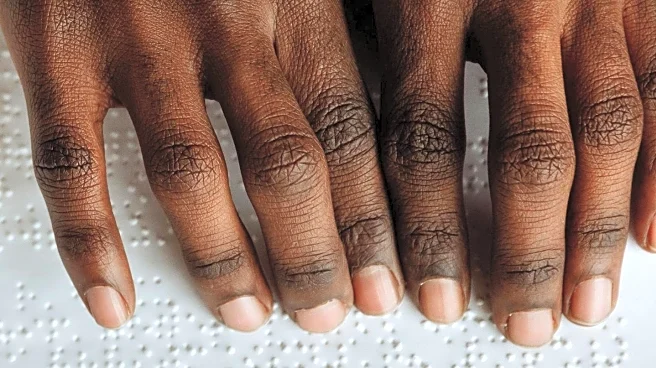What's Happening?
A study led by Jean Claude Njabou Katte at the University of Exeter has identified a novel subtype of diabetes in sub-Saharan African youths, which differs from classical type 1 diabetes. This subtype is characterized by the absence of autoantibodies and genetic risk factors typically associated with type 1 diabetes. The research involved 894 Black Africans from Uganda, Cameroon, and South Africa, all diagnosed with type 1 diabetes and treated with insulin. Findings revealed that 65% of these individuals lacked autoantibodies, suggesting their immune systems were not responsible for their insulin deficiency. This discovery points to a non-autoimmune form of diabetes, which may require new treatment strategies.
Why It's Important?
The identification of a non-autoimmune diabetes subtype in sub-Saharan Africa has significant implications for diabetes treatment and management in the region. It suggests that current treatment protocols, primarily focused on autoimmune diabetes, may not be effective for this newly recognized subtype. This could lead to the development of tailored treatment strategies that address the unique characteristics of this condition. Additionally, the study highlights potential genetic and environmental factors contributing to this subtype, which could inform future research and healthcare policies. Understanding this subtype is crucial for improving health outcomes and reducing diabetes-related complications in affected populations.
What's Next?
Further research is needed to determine the exact causes of this non-autoimmune diabetes subtype and to develop appropriate treatment strategies. Researchers may explore genetic factors, environmental influences, and potential unknown autoantibodies that could contribute to this condition. Healthcare providers in sub-Saharan Africa may need to adapt their treatment approaches to better address the needs of patients with this subtype. Additionally, comparative studies with other populations, such as Black Americans, could provide insights into shared genetic or environmental factors influencing this condition.
Beyond the Headlines
The discovery of this diabetes subtype raises questions about the broader implications for global diabetes research and treatment. It challenges the conventional understanding of type 1 diabetes and suggests that similar non-autoimmune subtypes may exist in other regions or populations. This could lead to a reevaluation of diabetes classification and treatment worldwide, emphasizing the need for personalized medicine approaches. Furthermore, the study underscores the importance of conducting research in diverse populations to uncover unique health challenges and improve global health equity.











